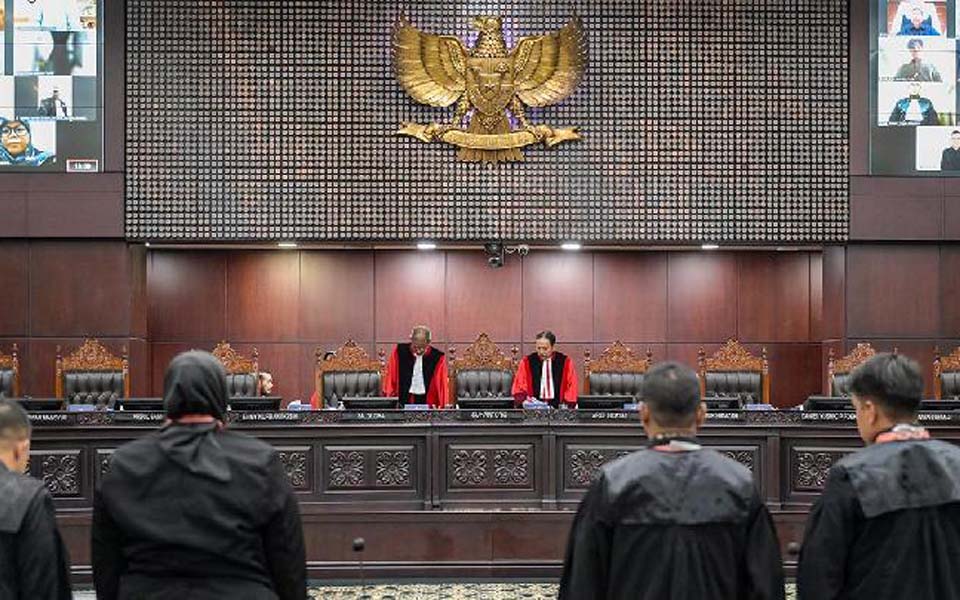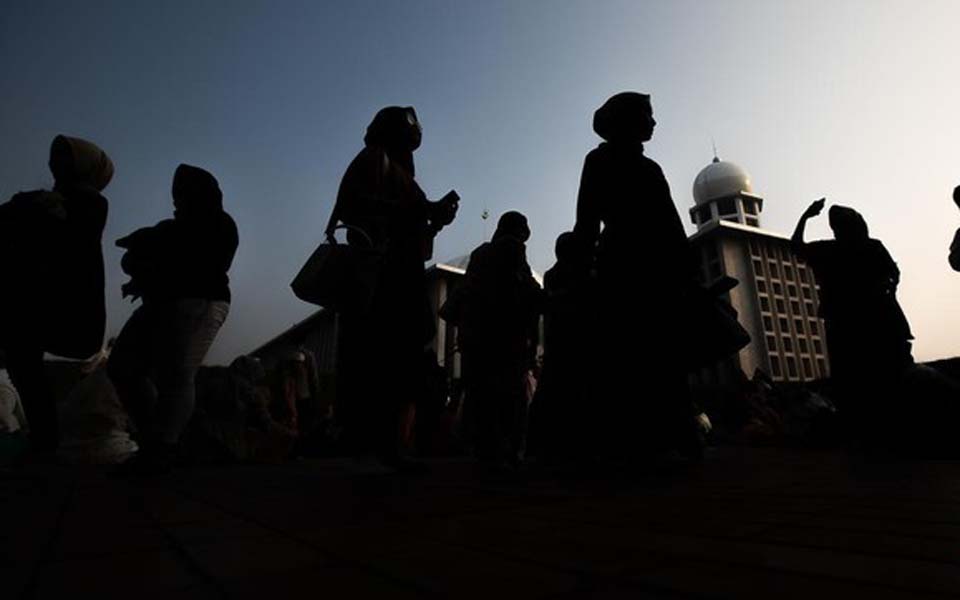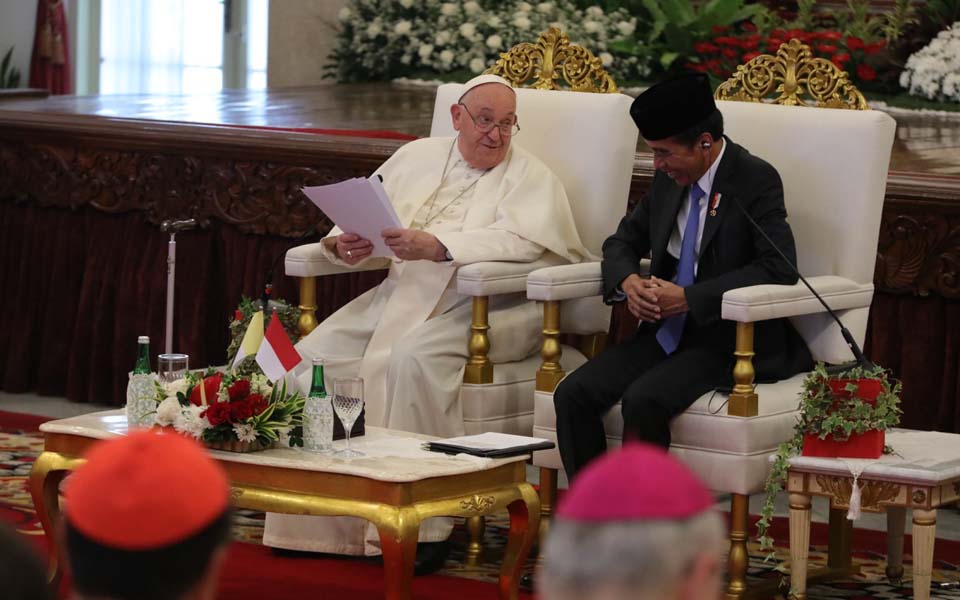Jakarta – Indonesian Human Rights Watch (Imparsial) has found scores of violations against freedom of religion and worship (KBB) or intolerance in Indonesia over the last year.
Imparsial Program Coordinator Ardimanto Adiputra said that the violations against freedom of religion and worship occurred in a variety of forms.
“There were at least 31 cases found which violated the right to freedom of religion and worship which we monitored in the media”, said Adiputra during a press conference by Imparsial at its offices in Jakarta on November 17.
Adiputra explained that the violations were dominated by prohibitions on rituals, recitation of the Quran, sermons or conducting religious beliefs with as many as 12 cases.
The second most frequent violation was prohibitions on establishing houses of worship with 11 cases, followed vandalism of houses of worship, either buildings or property with three cases and prohibitions on certain ethnic and cultural groups, in this case Cap Gomeh with two cases.
“Then the fifth was regulations on the wearing of clothing related to religion or certain beliefs. There was one case of this”, explained Adiputra.
The next kind of violation was related to appeals or circulars about certain religious teachings with one case. The final point was related to rejecting neighbours with a different religion. “There was also one case of this”, he asserted.
Adiputra said that the perpetrators of these violations were made up of social organisations and state officials or the government. Related to the last point, he said that there were four cases of such violations.
The violations committed by the government, he explained, were in the form of revoking permits to establish houses of worship, bans on celebrations or certain religious rituals, and appeals or circulars by governments to monitor certain teachings or religions.
“Now, state officials or the government are still contributing to violations against freedom of religion and belief. Yet they should be the ones who protect the right to freedom of religion and belief”, he said.
Indonesian Legal Roundtable (ILR) researcher Erwin Natosmal Oemar meanwhile said that intolerance cannot be separated from the legal framework that exists in Indonesia.
In the case of national polices, Oemar highlighted the articles on blasphemy. According to Oemar, the use of the diction “religious insult” is no longer relevant under current conditions.
He highlighted Article 304 of the Criminal Code (KUHP) which stipulates a five-year sentence for people who declare a feeling or commit an action which is hostile or blasphemous against religion, which has not been abolished in the draft Criminal Code (RKUHP).
Moreover, he said, the RKHUP contains additional offenses related to religion under Article 306. The article states, “Anyone who publically incites in any form with the intent of negating a person’s belief in any religion which is followed in Indonesia shall be sentenced to a maximum of four years jail”.
“This is happening at the [the level] of national regulations in this case the KUHP and the RKUHP which still provide space for people to make subjective interpretations so in practice people use the KUHP as a justification”, said Oemar.
At the regional level meanwhile, intolerance emerges from discriminative local government policies though bylaws (perda).
“Syariah perda [perda based on Islamic law], I apologise, perda which smack of religion do not just appear to be promoted by religious based groups but also by non-religious based groups”, he said.
According to Oemar, discriminative bylaws arise because of political expression where, explained Oemar, religion is the best selling merchandise to gain votes.
“Sometimes perda smacking of religion are created, for example people having to be able to read the Al Quran, people having to take part in Quran recitations, or having to wear a jilbab [Islamic veil] even though not everyone is Islamic”, he said. (ryn/ugo)
[Translated by James Balowski. The original title of the article was “Imparsial Temukan 31 Kasus Intoleransi selama Setahun”.]















